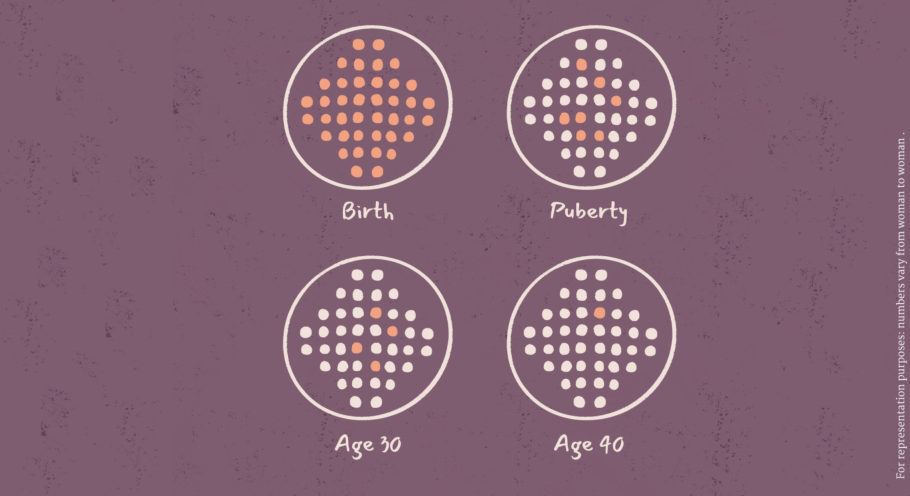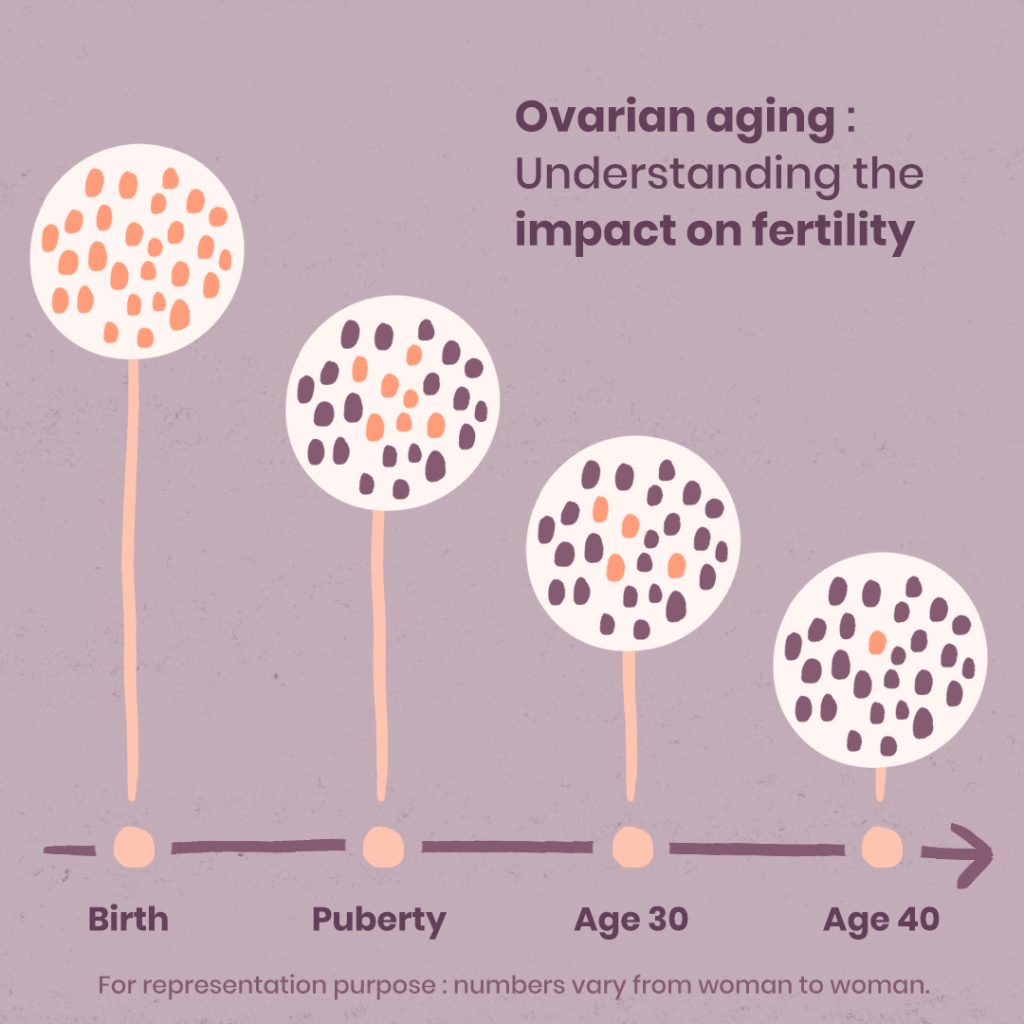
Aging and Folliculogenesis: Impacts on Fertility
In their 2022 article, “Age-Related Changes in Folliculogenesis and Potential Modifiers to Improve Fertility Outcomes”, Ecem Esencan and co-authors delve deeply into how aging affects folliculogenesis and its implications for female fertility.
The Evolution of Folliculogenesis Over a Lifetime
Folliculogenesis, the natural process through which eggs mature within ovarian follicles, is central to female fertility. However, this mechanism undergoes significant changes with age, directly influencing a woman’s ability to conceive. At birth, a female has approximately 1 to 2 million follicles. By puberty, this number decreases drastically to around 300,000 to 400,000 and continues to decline annually. Around the age of 35, both the quantity and quality of eggs deteriorate sharply, increasing the risks of chromosomal abnormalities and miscarriages.
Ovarian Aging and Decline in Oocyte Quality
Ovarian aging not only reduces the number of follicles but also affects the quality of the remaining oocytes. Hormonal changes, particularly a marked decline in anti-Müllerian hormone (AMH), essential for regulating follicular growth, become evident with age. Additionally, mitochondrial function in oocytes deteriorates. Mitochondria, which provide the energy required for proper oocyte development, become less efficient, leading to oxidative stress and disruptions in cell division. These changes increase the likelihood of chromosomal abnormalities, reducing the chances of successful conception and raising the risk of miscarriage.
Preserving Fertility in the Face of Ovarian Aging
Ovarian aging significantly impacts a woman’s ability to conceive naturally with healthy eggs. To mitigate these effects, it is advisable to consider starting a family earlier in life or exploring fertility preservation methods, such as oocyte cryopreservation (egg freezing).
Understanding Fertility Decline to Take Action
By gaining a deeper understanding of the mechanisms behind fertility decline, we can raise awareness about the importance of early fertility planning or preservation to maximize the chances of conception.
Publish on: January 26 2025 in Infertilité | Préservation de la fertilité | ovarian reserve | female fertility

Dr. Pierre Miron is renowned internationally in the field of fertility, reproduction and medically assisted procreation. A visionary, he founded three In Vitro Fertilization programs in Quebec over the past 30 years. Thanks to his private center of human genetics which specializes in the field of reproduction, he has made a unique prenatal screening program for Down's Syndrome accessible to all pregnant women - a service previously not available in Quebec.
Dr. Miron has always been actively and publicly involved in helping the cause of infertile couples. He notably helped launch the Quebec Infertility Association (ACIQ).
